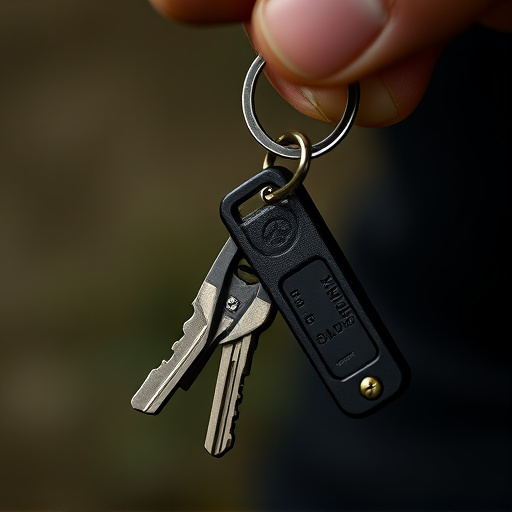The legality of keychain weapons varies globally, with schools and governments having their own regulations. Students considering self-defense options must research local laws and school policies regarding keychain safety devices, which can be subject to strict bans or require permits. Adhering to these rules is crucial for legal compliance and personal safety, especially when balancing the need for defense with restrictions in public places.
In today’s world, personal safety is paramount, especially for students. The increasing popularity of keychain safety devices has led to a surge in interest in legal requirements surrounding these compact weapons. This article guides you through the key aspects of carrying a legal keychain weapon, focusing on student safety. We’ll explore who can legally possess one, crucial safety measures, and essential legal considerations to ensure peace of mind while you stay protected.
- Understanding Legal Requirements for Keychain Weapons
- Who Can Carry a Legal Keychain Weapon?
- Ensuring Safety When Carrying a Keychain Device
Understanding Legal Requirements for Keychain Weapons
In many regions, the legal status of keychain weapons, or personal defense tools attached to keychains, is a complex issue. While some areas allow for their possession as long as they meet specific criteria, others have stringent regulations or outright ban them. For students considering carrying a legal keychain weapon for self-defense, understanding these requirements is essential. The definition of what constitutes a legal keychain weapon varies by jurisdiction, encompassing factors such as blade length, overall size, and purpose.
In the context of legal keychain weapons for students, it’s crucial to check local laws and school policies. Some countries permit small, folding knives or non-lethal self-defense devices if they are kept locked away and only used in emergency situations. Students should be aware that certain establishments, like schools and universities, may have their own rules prohibiting the carrying of any kind of weapon, even those classified as legal keychain weapons. Staying informed about these regulations is vital to ensure compliance and avoid potential legal repercussions.
Who Can Carry a Legal Keychain Weapon?
The legal status of keychain safety devices, or keychain weapons, varies by jurisdiction. In many places, these compact self-defense tools are permitted for individuals aged 18 or above. This includes students who may find themselves in situations where personal safety is a concern, especially on campus or during late-night walks. However, specific regulations should be checked thoroughly before carrying such a device to ensure compliance with local laws and school policies.
Student access to legal keychain weapons is subject to restrictions aimed at maintaining public safety. These restrictions often include prohibitions against carrying weapons in certain locations, such as schools, government buildings, or places of worship. Additionally, there may be requirements for proof of age, training, or a permit to carry a legal keychain weapon openly or concealed. Students considering this option should consult their state’s laws and school regulations to understand the full scope of their rights and responsibilities.
Ensuring Safety When Carrying a Keychain Device
When carrying a keychain safety device, it’s paramount to prioritize both personal safety and adhere to legal requirements. In many jurisdictions, the legality of keychain weapons, especially for students, is strictly regulated. Before equipping yourself with such a device, thoroughly research and understand local laws pertaining to concealed carry permits and restrictions on self-defense tools.
Ensure that the keychain device meets necessary safety standards and includes features like a reliable locking mechanism to prevent accidental deployment. Additionally, familiarize yourself with safe handling practices to minimize risks during everyday use. This proactive approach not only guarantees compliance with legal obligations but also fosters responsible ownership of a keychain safety tool.
When it comes to carrying legal keychain weapons, understanding the safety measures and regulations is paramount. With the right knowledge, students can ensure they remain compliant while protecting themselves. Always check local laws and guidelines regarding keychain devices, as regulations vary. By adhering to these requirements, individuals can exercise their right to self-defense while promoting a safe environment for everyone.
